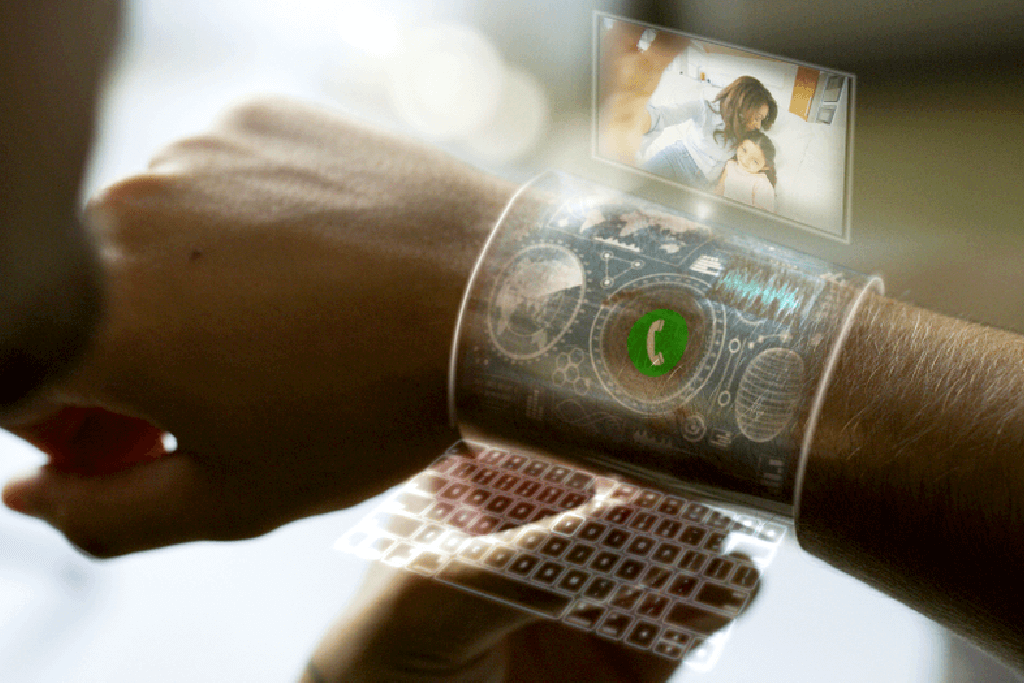
Wearable technology has evolved significantly in recent years, encompassing a wide range of devices such as smartwatches, fitness trackers, and augmented reality (AR) glasses. These devices have transcended their initial novelty status to become integral parts of our daily lives, reshaping industries such as healthcare, sports, and fashion. In this article, we’ll explore the latest trends and advancements in wearable technology and envision the possibilities for the future.
Smartwatches have emerged as one of the most popular categories of wearable devices, offering a plethora of features beyond simply telling time. Modern smartwatches are equipped with fitness tracking capabilities, heart rate monitors, GPS navigation, and smartphone integration, allowing users to stay connected and informed while on the go. Moreover, advancements in sensor technology and machine learning algorithms have enabled smartwatches to provide more accurate health and fitness insights, such as sleep tracking, stress monitoring, and even ECG measurements.
Fitness trackers, also known as activity trackers, continue to evolve with new features and functionalities aimed at improving users’ health and well-being. These devices typically monitor physical activity, including steps taken, calories burned, and distance traveled, providing users with valuable feedback to help them achieve their fitness goals. Recent advancements in fitness trackers include blood oxygen saturation (SpO2) monitoring, advanced sleep analysis, and personalized workout recommendations, making them indispensable tools for health-conscious individuals.
Augmented reality glasses represent the next frontier in wearable technology, offering immersive experiences that blend the physical and digital worlds. While early iterations of AR glasses were primarily targeted at niche markets such as gaming and enterprise applications, recent developments have focused on consumer-friendly designs with broader appeal. Modern AR glasses feature lightweight and stylish form factors, advanced optics, and enhanced connectivity, enabling a wide range of applications including navigation, education, remote assistance, and interactive gaming.
The impact of wearable technology extends beyond consumer electronics, with significant implications for industries such as healthcare, sports, and fashion. In healthcare, wearable devices are revolutionizing patient monitoring and remote care delivery, allowing healthcare providers to monitor vital signs, detect anomalies, and intervene proactively. From continuous glucose monitors for diabetes management to wearable ECG monitors for cardiac health, these devices are enabling personalized and preventive healthcare solutions that improve patient outcomes and reduce healthcare costs.
In the sports industry, wearable technology is empowering athletes to optimize their performance, prevent injuries, and track their progress more effectively. Wearable devices such as smart clothing, biomechanical sensors, and performance trackers provide valuable insights into athletes’ movements, biomechanics, and physiological responses, helping them train smarter and achieve peak performance. Moreover, wearable cameras and augmented reality overlays enhance the viewing experience for sports fans, offering immersive perspectives and real-time statistics during live events.
In the realm of fashion, wearable technology is blurring the lines between style and functionality, giving rise to a new category of “tech-infused” clothing and accessories. From smart fabrics with built-in sensors to LED-equipped garments with customizable lighting patterns, these innovative creations combine fashion-forward design with cutting-edge technology, allowing individuals to express themselves in new and exciting ways.
Looking ahead, the future of wearable technology is filled with possibilities. As advancements in miniaturization, sensor technology, and connectivity continue to accelerate, we can expect to see even more innovative wearable devices that seamlessly integrate into our lives. From health monitoring and fitness tracking to augmented reality experiences and fashion statements, wearable technology is poised to redefine how we interact with the world around us.

